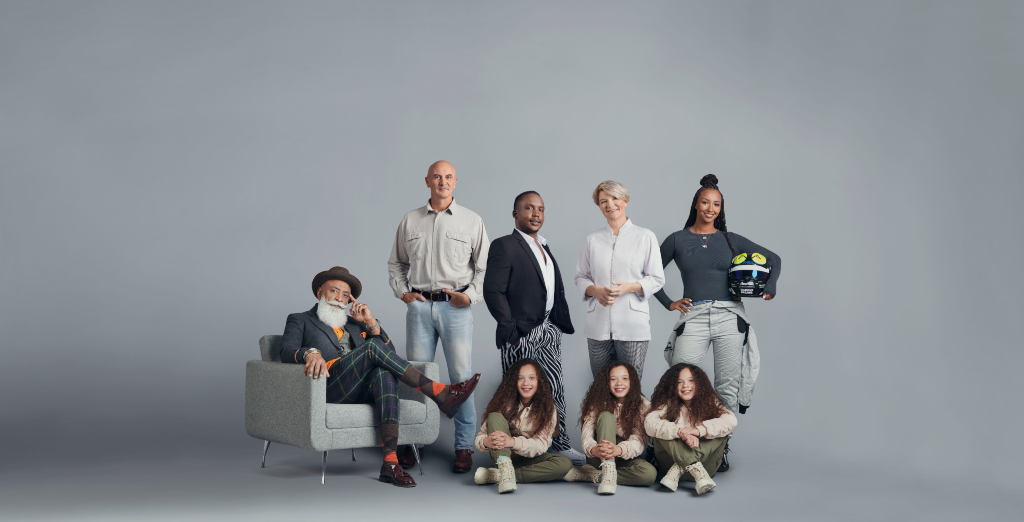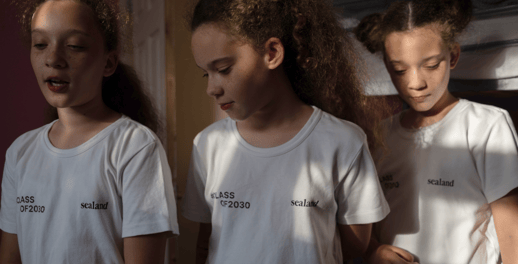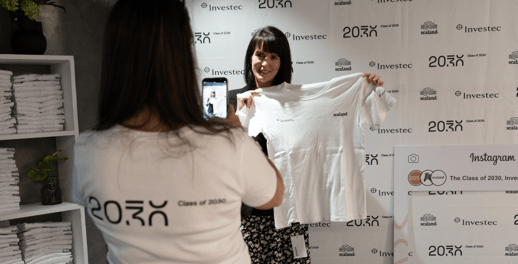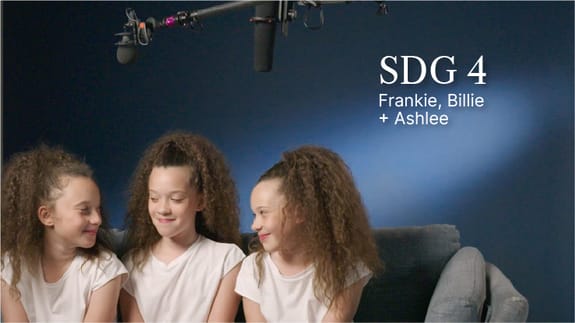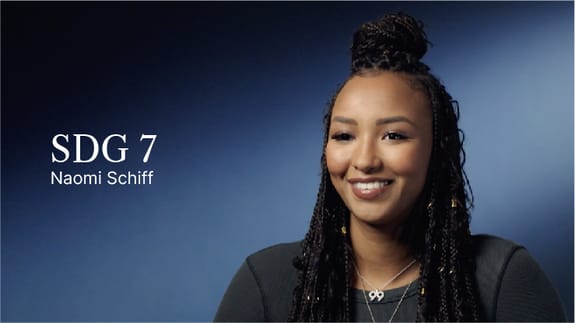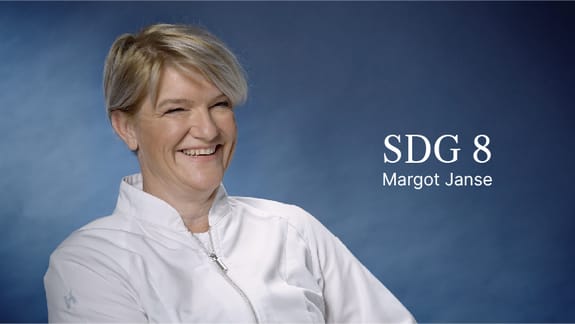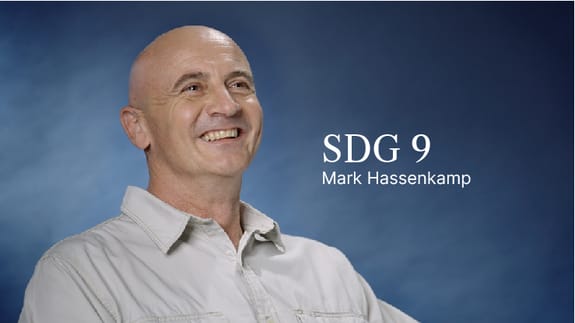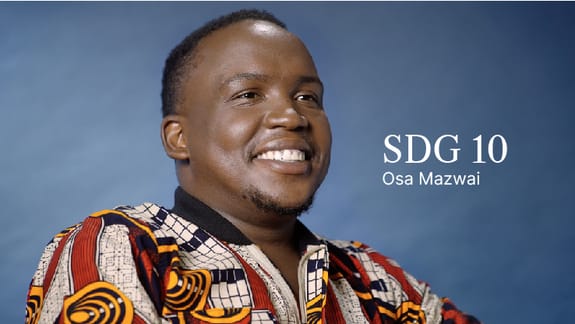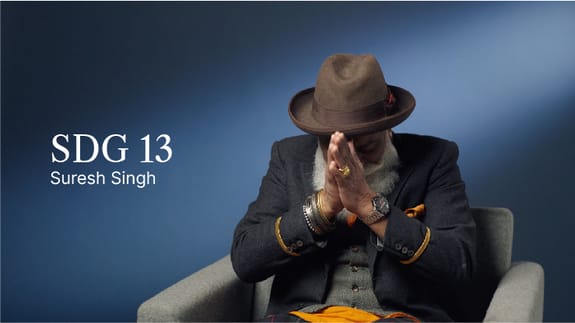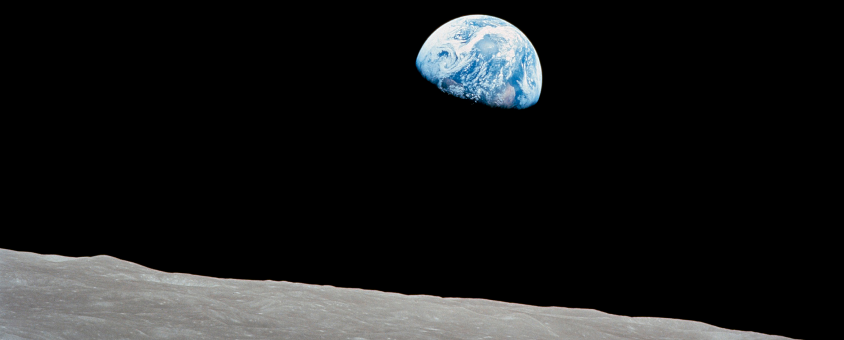[06:10] The inception of the Sustainable Development Goals (SDGs)
Navid Hanif: And now, I have to fast-forward to 2007. I think 2007 was a pivotal year, in leading the demand for the sustainable development goals; and I assume some of you know what happened in 2007. Thomas Friedman will say, iPhone was invented. That’s the year Vice President Al Gore and the UN Intergovernmental Panel on Climate Change got the Nobel Peace Prize. This was an acknowledgement at the global level. Our planet, if we do not address the climate change in a meaningful manner, is going to suffer significantly in the coming decades; and that means our own existence is at very high risk.
So in 2007, the new Secretary General, Mr Ban Ki-Moon also came onboard. He made climate change his signature issue. While we were looking at this challenge, here comes a financial crisis; the great recession, and we saw the fragilities of our financial system and the levels of exclusion, that we had never seen before. So climate change, financial crisis, and then the Arab spring. The voices and the noises were becoming louder and louder, from all over the world, that things are not working, too many people are being left behind. Then, the planet, that has very high risk, in terms of rising ocean levels. And after a long time, I saw all voices just calling on the UN, the civil society, academia, many governments, that the UN has to do something meaningful, to capture all dimensions of development, and not just poverty eradication, which is critical.
And then, also, came the time for Johannesburg + 10, and Rio + 20. In 2012, we were, again, going to Rio to look what we had accomplished, because we had adopted a document called, Agenda 21; and hardly anything was implemented to reverse our ecological decline. But I don’t want to just give this bleak picture, we had accomplished some of the MDGs, for which the deadline was 2015. The number of people living in absolute poverty, was halved; access to clean water had increased; a hundred million people were lifted out of slums; but that happened, merely in China and India.
So Rio + 20 in 2012, captured the key demands that the people were making of the UN. Inclusion and equality. Save the planet, we call it, People, Planet, Prosperity Agenda. It wasn’t easy, so there was an agreement to develop sustainable development goals in Rio, in 2012, but it wasn’t an easy undertaking. One of the colleagues just mentioned, what a complex goal, innovation in industrialising infrastructure. That is the nature of compromise; 193 governments, and millions of civil society organisations, and business, and academia, are negotiating. So from 2012 to 2015, it took us three years to agree on these seventeen goals, and I’ll come to those in a moment.
Initially, we thought we could have ten goals, but we could not capture all the complex issues. And there are actually three clusters of goals. Goals one to six, which are social basic needs goals. Goals seven to fifteen, production, economy, inequality. And then we have goal sixteen, about peace, security in societies, that have good institutions. And goal seventeen, about financing the SDGs.
So in 2015, the world came together because of the challenges we were facing since 2007, they were becoming very visible, loud and clear, they adopted these seventeen goals by 2030. And I mentioned in the MDGs, we agreed to halve poverty by 2015, in fifteen years.
There was data available from some countries in the ’90s, that they had managed to halve poverty in fifteen years; it was doable, achievable goals. And those numbers were used to come up with 2030 goals, targets and our indicators. They are very detailed goals, with every milestone measured, at least the desire to measure it in numbers that are presentable, verifiable, and can be used for a further plan.
So in 2015, September, these goals were adopted - I mentioned three clusters - and they’re supposed to bring humanity, as Tanya mentioned, to a sustainable path. So there is an intergenerational equity embedded in these goals; it’s not just my future, Tanya’s future, it’s our children’s and our grandchildren’s future, that has to be safe-guarded through these goals.
There is a famous French saying, that if you want to achieve a goal, three things have to come together: head, heart and wallet. Unless we deploy financing behind these goals, and change the systems that deal with financing all over the world, the shift to sustainable development will remain a mirage.
So, in July 2015, in Africa, in Addis Ababa, we also agreed on Addis Ababa action agenda, which is designed to finance sustainable development, with its seven chapters clearly outlining the actions that are required to shift the whole financial system, trading system, investment behind these seventeen goals; and that’s where companies like Investec, and many other members of the Alliance for Sustainable Development become critical; they have to initiate these actions in their own companies, in their own sectors, and then, all over the world, inspire that every rand, every dollar, every pound, is earned, saved, invested and spent, in line with the sustainable development goals.
It’s the rising inequalities that can disrupt societies, and which could shake the foundation of our civilization, the way we know it, at least since the ’90s, in terms of the political systems and the economic systems that we have embraced; but those have to change, that’s what sustainable goals are all about.
Back to top
The pandemic, actually, has made it even more clear, what, as we call it, it has served like an X-ray, to show the fragilities and flaws of our systems. So that’s another message that we need to achieve the 2030 agenda, with full commitment and determination, if we want to save the planet and ensure no one is left behind.
The last point I want to make, and that’s really for our youngest 2030 class members, that you will shape the future of humanity by, not only what you embrace in your education institutions, but what you believe in. And as of now, we see very encouraging trends among the millennials, generation Z, they believe that we need equity, equitable distribution of resources, and we need to act collectively to save people, planet and pursue prosperity. So I’m not absolving ourselves of responsibility, but we’re looking towards your generation to make this shift happen.
And once again, I want to commend Investec for this initiative, and looking forward to meet with all of you in nine years. Hopefully we’ll have a lot to share at that time, in terms of progress toward the 2030 agenda. When I ask students, what keeps you awake at night? This is what they identify as issues that they think about.
Let’s move onto the slide which shows how deeply connected the SDGs are and the six that you have chosen, actually, those could have multiplied effects on the completion of other SDGs.
Next slide. This is what I wanted to share with you, the foundation is the biosphere, then society has to be stable, functional, and then economy. So this is a very powerful depiction of people, planet and prosperity.
And one more, which is about connections. This is what I mentioned, we have a hundred and sixty-nine targets for the seventeen goals, and these are the connections among those targets, how closely knit the SDGs are.
Ryan Parkhurst: Thank you. Not sure if anybody’s got a question now. Otherwise, I’ve got a little question. Maybe you can explain a little bit, what it was like at the ratification of all of these; were you there? What was it like? What was the energy in the room like? Anybody of prominence was there. If you could explain that experience, that would be wonderful.
Navid Hanif: First, I mentioned, it took three years to agree on these goals; that required extensive, first of all, analytical work, and just a conversation among member States. And then, actual negotiations. It wasn’t easy, and that’s why I mentioned, we had to come up with seventeen goals to capture all dimensions of human existence and our pursuit for prosperity.
The moment these were adopted in the General Assembly Hall, in September 2015, it was a moment of jubilation and great promise; the world was coming together, all leaders were there with a deep commitment that we have to change our trajectory, we want to save our planet and get there. I think every prominent leader that I could think of, was there. In the GA Hall, we felt the energy and commitment to achieve. And one very striking thing, one of the leaders brought his grandchild to the signing of the SDGs, just to show this is not only for us, it’s for our future and the future of humanity.
So Ryan, it was an uplifting moment, and we started with great hopes, and commitment, and we haven’t lost it, we still believe this is the way humanity should progress, and this pandemic is a clear message, if we don’t do that... imagine if we were already enlisting in the health systems as agreed in the SDGs, we would not have been facing such serious consequences in many countries, if we had enlisted what we agreed to do.
So, great moment, but we still believe that, and as we saw in the G Hall, we see in many quarters of the world, and we just need to rally it and bring it together, and that’s what you are doing.
Ryan Parkhurst: Super. Thank you very much Mr Hanif.
Naomi, I’d like to bring you in here, I see your hand is, very politely, up; over to you.
Back to top
